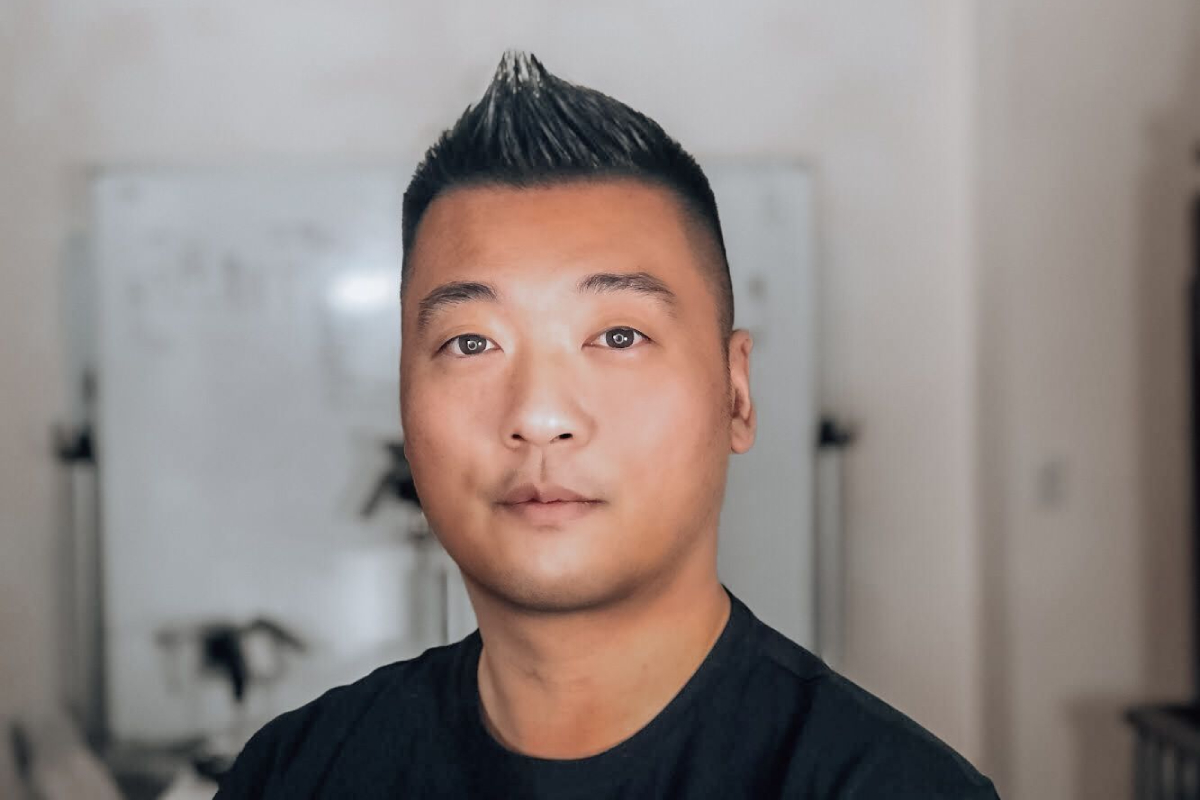When Jerry Chien met Jason Herrington at a conference in London in 2019, it was “instant bromance.” The pair spoke for hours about the problems of data collection, social media, and potential solutions. Chien knew they’d start a business after that one meeting, and along with Chien’s long-time friend and collaborator, Anja Vukovic, the trio founded Gravvity, a social media and chat application that seeks to reimagine the social media landscape and set new priorities. While typical social media platforms are characterized by their addictive qualities and algorithms that push antagonistic content, Gravvity strives to be a more mindful alternative. According to Chien, two guiding principles for Gravvity are user empowerment and intentionality.
Can you explain how Gravvity works?
Think of it as WhatsApp reimagined. WhatsApp, Telegram, and Signal all have a similar look and feel, like a Windows versus a Mac. We tried to modernize the chat experience. We’re trying to build a community where members are involved in how we shape our products and services going forward.
What differentiates our platform from any other is that their main goal is to keep you on the app as long as possible so they can push as many ads to you as possible and pry data from you. We have a fundamentally different objective, which is to give people the empowerment to control their experience, and to be able to find a better balance and leverage their social connections to their benefit. To reimagine the whole social experience from the users’ perspective, versus looking at it from an advertising perspective.
If you post content, only the top 1% gets rewarded as an influencer. With Gravvity, we’ll be rewarding everybody for posts if they’re upvoted by the community. If they think that your post enriches their experience, they give you an upvote, and based on that, you get a point for our reward system.
We’re going to create ownership, licensing, and trademarking abilities for content. So, a creator can choose to trademark, sell, or license it to others. Right now, a lot of content is repurposed by other people, and the creator isn’t getting any value. We want to have a marketplace that allows creators to structure their content and make it available in a more accessible way.
How does Gravvity specifically address the negative components of social media?
Typically, the algorithms and features are designed to keep you on the apps as long as possible. And what content keeps you on the app [is] content that agitates you or creates an emotional response. That’s what algorithms have learned, so they’re programmed to be more effective at giving you negative and antagonistic content to keep you engaged.
In general, the features of social media like notification dings, follower counts, likes, etc. are designed to create addiction. It’s not really about your social experience or creating deeper social connections. We’ve taken all those things out to eliminate external validation features. There are no public likes, follower counts, or comments. If you want to react to a post, send a message directly.
We’ve taken away those algorithms that are programmed to push ads. We give users total control over the content that they see in their feed. Other apps instantly bring you to your feed and you start to see content. We have a landing page which makes people mindful of what kind of experience they want to have. That little pause gives people intentionality in terms of what they’re actually trying to achieve. Then, we have a timer that you can preset or that’s always on your screen to show you how long you’ve been scrolling.
Why’s it important for users to understand and have access to the data that companies collect from them?
The reason why people don’t think about their data is because there’s really no way for them to save it somewhere or to exchange it in a marketplace as leverage. So, even if they have it, they don’t know how to use it. We’ve solved that problem as part of Gravvity because 100% of the data produced on our platform by our users are controlled and owned by them. They can organize it—we’ll help them obviously—but they can decide to delete it all, save it, or whatever they want.
Then, we create a marketplace for them to share their data if they want to. They have to opt-in, not opt-out, if they want to share their data with businesses. But the default is you’re not seeing any ads. If you want to see ads, you control what type of ads you see. Like, if you only wanted to see ads from local businesses, or athletics but no food, or if you only wanted 10 ads a day—you pick all that stuff.
If a business is interested in advertising to someone’s feed, all the ad revenue that’s generated, we share 50% of the profits with the user. That’s the matchmaking we create so there’s no more spam.
For people who are accustomed to their platforms or are skeptical of all social media, how can you convince them to make the move to Gravvity?
I have a very simple formula for how we’ll grow. Get 1000 people that are committed to solving this problem into our community. They each have 15 to 20 people that they socialize with, let’s get them on board, then grow organically as best we can. It’s not about becoming bigger than Facebook; it’s about creating a sustainable community. I’m not overly concerned about how many people, it’s more so about [whether there are] enough quality people that are getting the quality experience that we’re offering.
To the person you referred to, what would it take for you to try something else because we’re listening, and that’s what we’re going to deliver. It’s social media 2.0, where users come first. It’s a completely radical idea, so I hope people will embrace it.
Marcus Medford | Contributing Writer



















